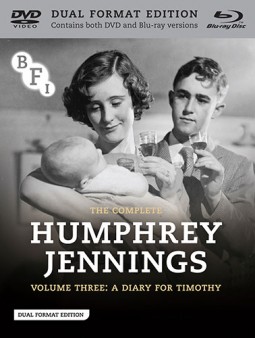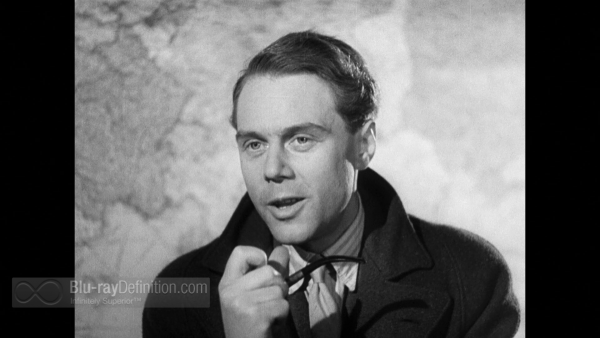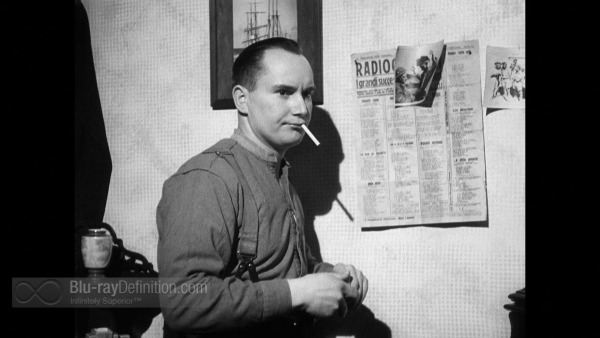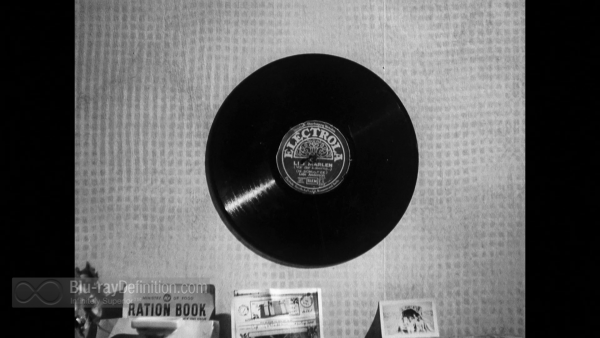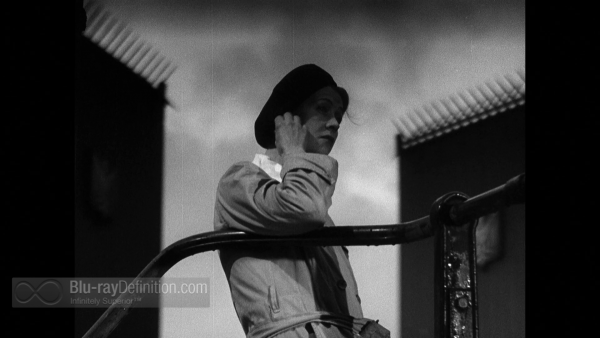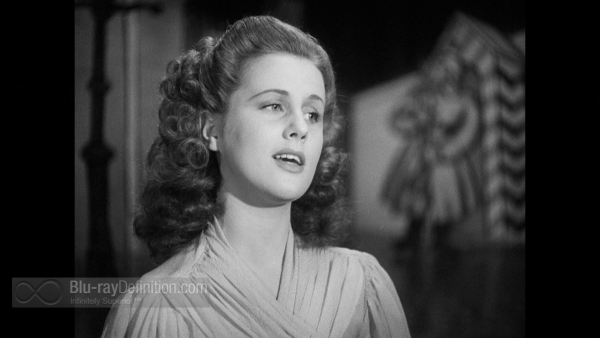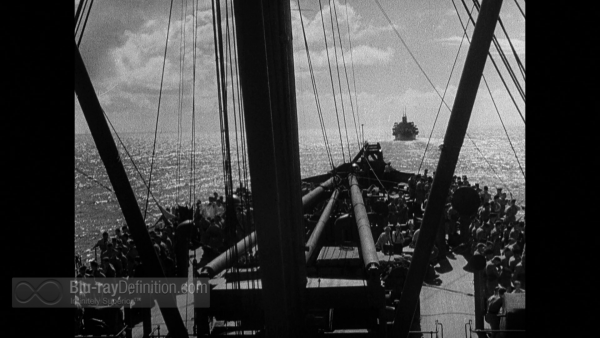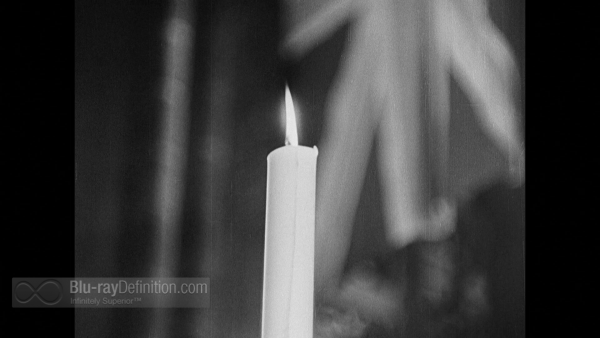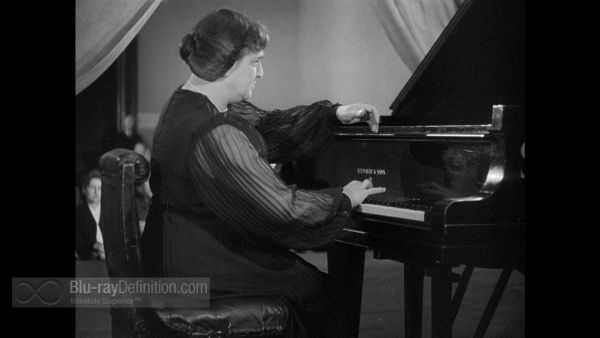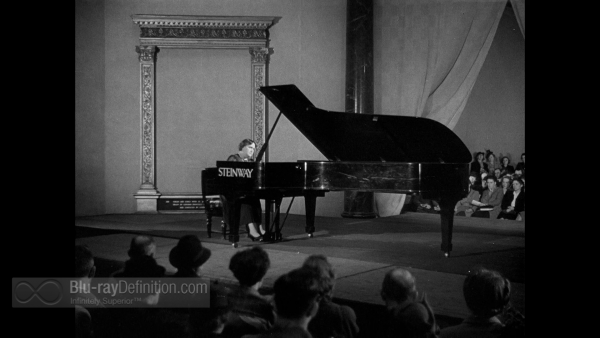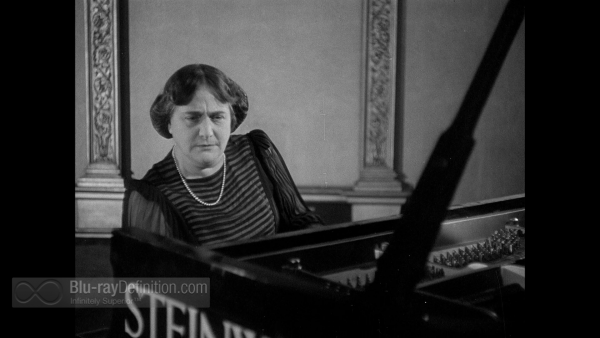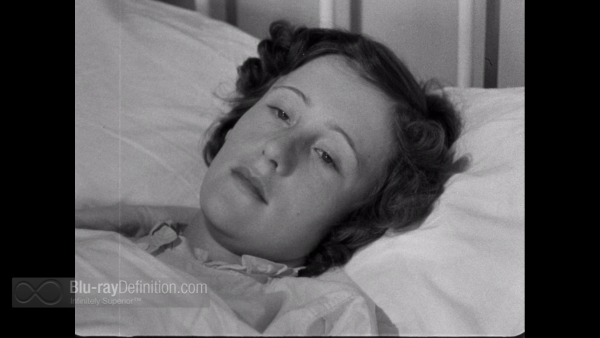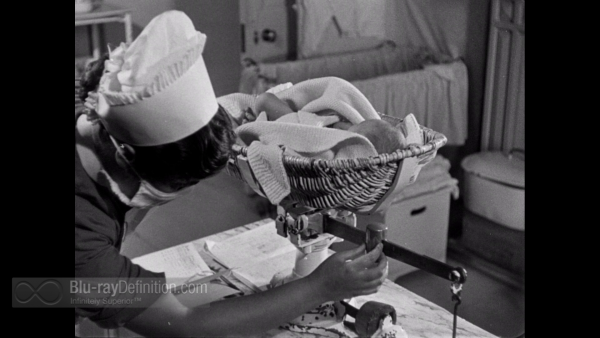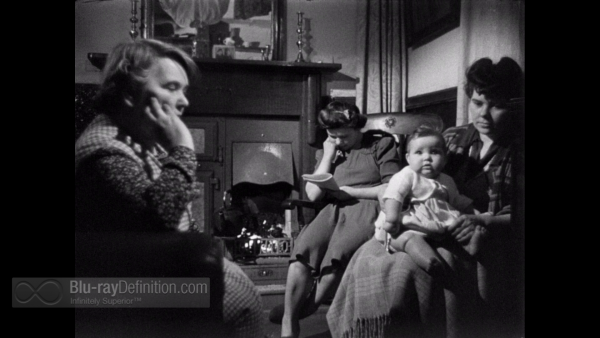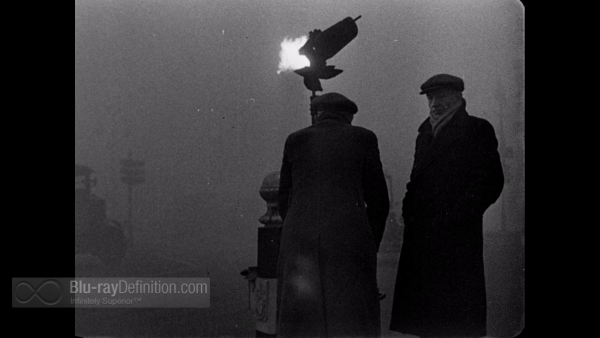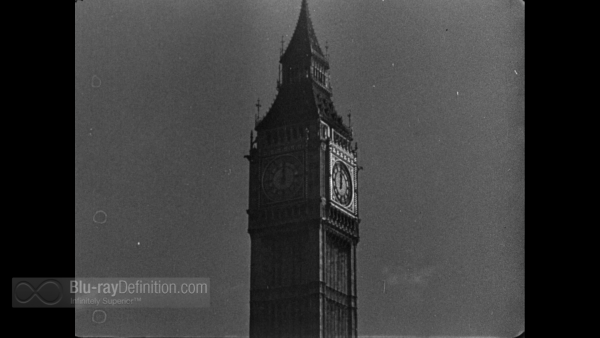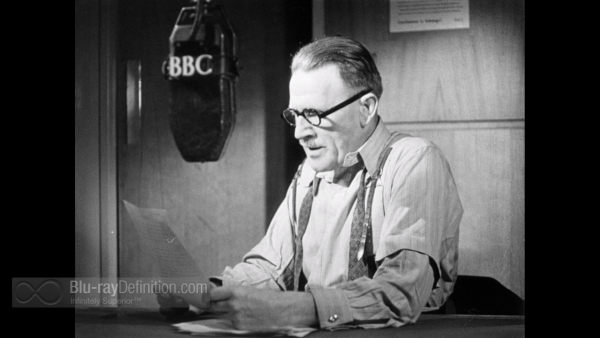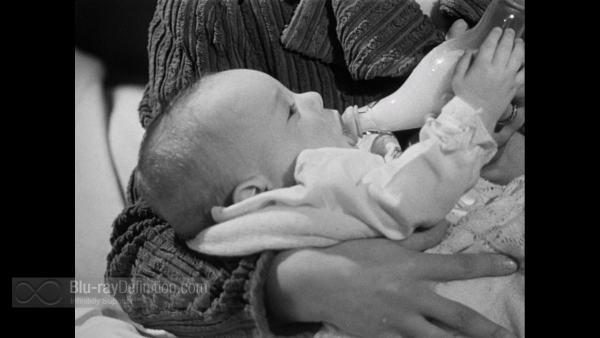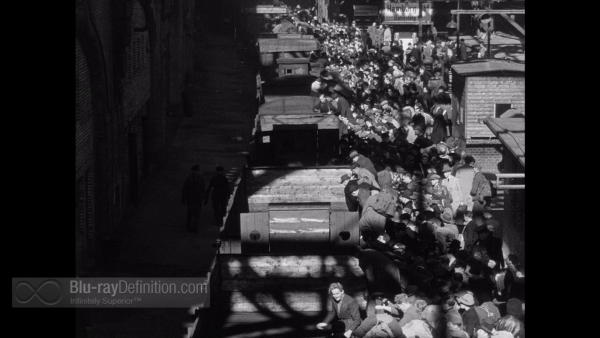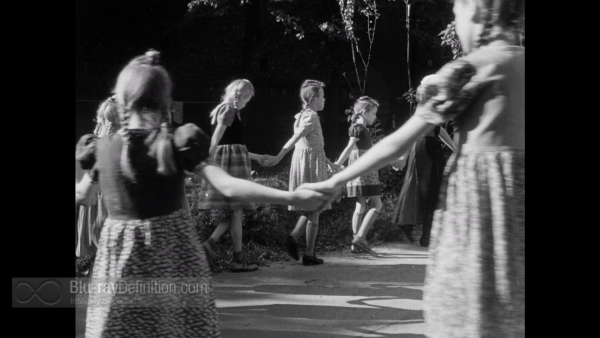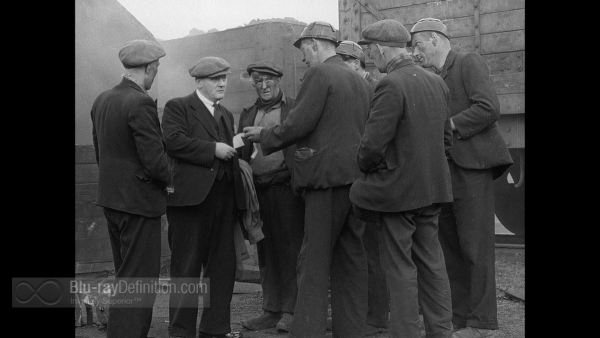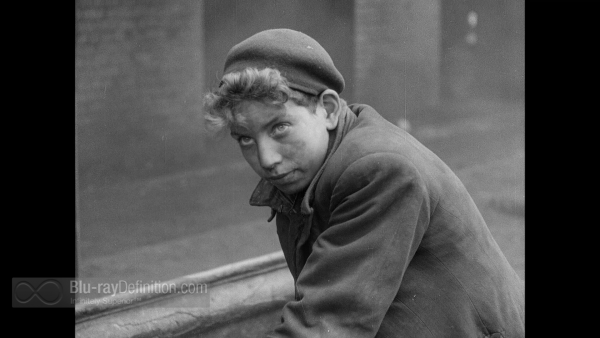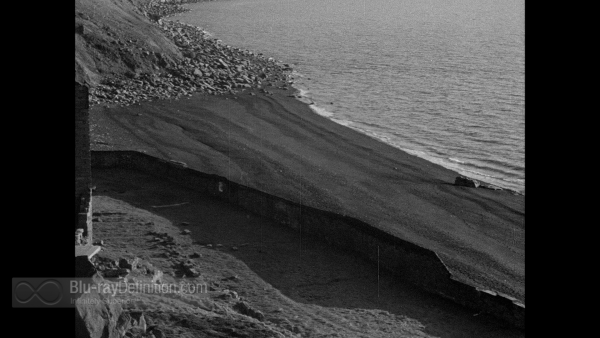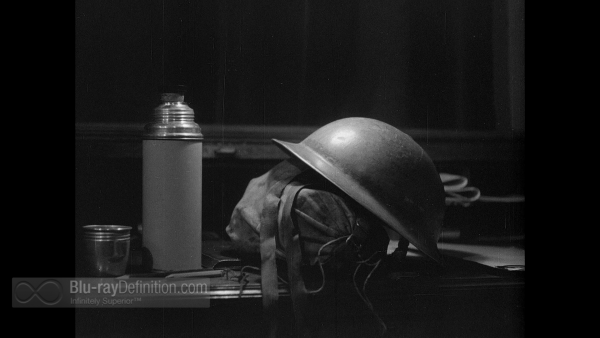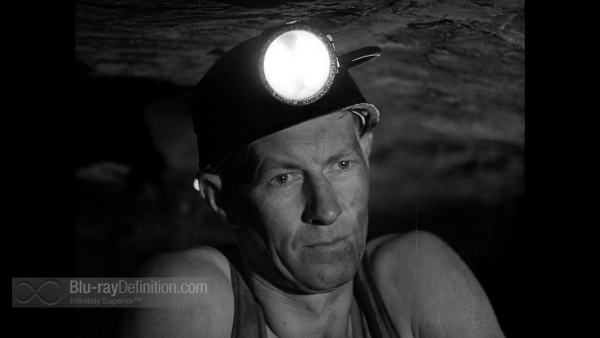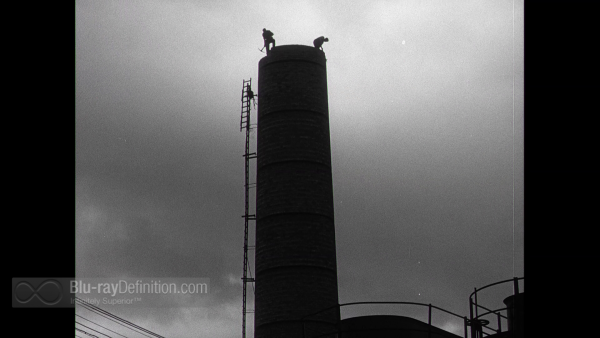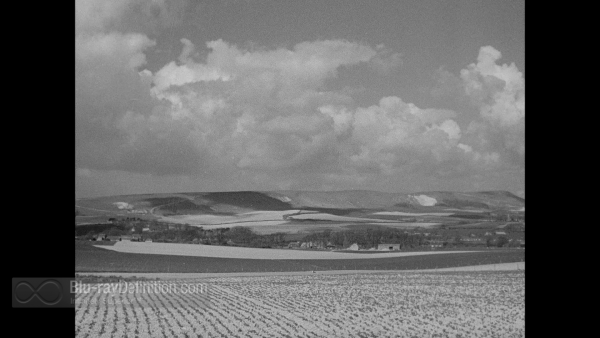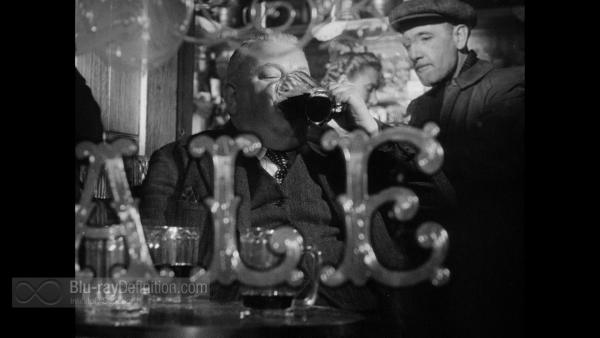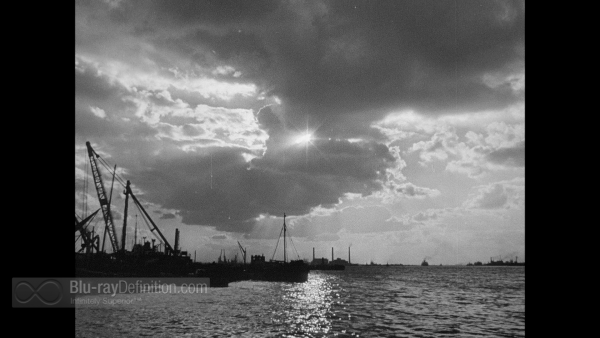– –
(The below TheaterByte screen captures were taken directly from the Blu-ray Disc and losslessly compressed in the PNG format. There should be no loss of picture quality with this format. All screen captures should be regarded only as an approximation of the full capabilities of the Blu-ray format.)
The Collection
[Rating:4/5]
If one wants to understand the heart and soul of Britain, one needs look no further than the films of Humphrey Jennings. His films, often employing real-life people to play out their actual roles in pseudo-documentary storytelling styles, concern themselves mostly with the everyday lives of the working class, the British family, the farmers, and the history of Britain. His films are, arguably, a truer precursor to what would become the British New Wave, the British branch of the dramatic cinematic renaissance in cinema that began in France and made its way across the channel.
Jennings’ works, as mundane as their subjects may seem to an outsider, were always grand in their scope and haunting in their imagery. So much so, that his works reportedly inspired Danny Boyle’s acclaimed 2013 Olympic Games Opening Ceremonies.
Jennings was perceptive behind the lens, as keen-eyed as the greatest still photographers. He was able to find the perfect image of, say, a tower silhouetted against the sky or a grimy-faced miner just off his shift, and turn it into visual poetry, aided by the British literary and musical icons of his era, such as E.M. Forster or Ralph Vaughn Williams.
This third collection of his films by the BFI includes eight of his films, including the much-loved A Diary for Timothy (1946), Jennings’ collaboration with E.M. Forster.
The films:
- The True Story of Lili Marlene (1944) – A reenactment of a German wartime song.
- The Eighty Days (1944) – A film about the efforts of the British during the German blitz to prevent as many missiles as possible from hitting their targets.
- Myra Hess (1945) – Pianist Myra Hess plays the first movement of Beethoven’s Opus 57 in F Minor piano sonata “Appassionata”
- A Diary for Timothy (1946) – An essay on the end of 1944 and beginning of 1945, preocupied with the uncertainty of a world shattered by war.
- A Defeated People (1946) – An almost shockingly (to modern ears) unapologetically unsympathetic look at the German victims (mostly women and children) of World War II
- The Cumberland Story (1947) – A rather stiffly composed post-war pseudo-documentary about a miners’ strike.
- The Dim Little Island (1948) – Four men deliver highly individualized essays on the past, present, and future of Britain, set to the pastoral music of Ralph Vaughn Williams
- Family Portrait (1950) – Jennings’ cinematic “collage” on Britain’s history, the family in the title, being the nation itself.
Video Quality
[Rating:3.5/5]
Given the age and provenance of these short films, it is a given that wear and tear would set in and be a major issue. Despite the BFI’s and, in the case of A Diary for Timothy and The Dim Little Island, Midnight Transfer’s best efforts, scratches and dirt along with other issues still abound. However, when the image is on, it is on, giving up rich, oily blacks and needly-sharp textures with a good, natural layer of grain.
Audio Quality
[Rating:3/5]
We get the original monaural tracks in LPCM 2.0 (48kHz/24-bit) and it is a serviceable track, given the source. Some hiss, pops, and crackle can be heard and there is limited dynamic range, but it surprisingly adept, especially when the beautiful strings of Ralph Vaughn Williams’ pastoral music strike up in The Dim Little Island.
Supplemental Materials
[Rating:4/5]
It another strong slate of supplements to go along with these wonderful films from the BFI.
The supplements:
- DVD
- V.1. (1944)– Alternative cut of The Eighty Days
- The Good Life (Graham Wallace, 1951) – The Film Jennings was working on at his death
- Illustrated booklet with film notes, credits, and biographies by John Wyver, Patrick Russell, Kevin Jackson, Scott Anthony, and others.
The Definitive Word
Overall:
[Rating:3.5/5]
The films of Humphrey Jennings are films that must be held as required viewing for any cineaste given the poeticism and elegiac imagery on display. While they can sometimes feel a little clumsy in their narrative by today’s standards, they are nonetheless powerful pieces. Kudos to the BFI for this series.
Additional Screen Captures
[amazon-product region=”uk” tracking_id=”bluraydefinit-21″]B00CNDXTS2[/amazon-product]
[amazon-product region=”uk” tracking_id=”bluraydefinit-21″]B00CNDXTS2[/amazon-product]


